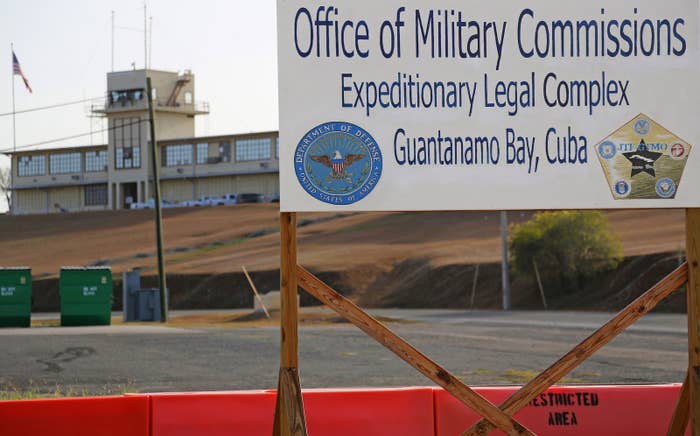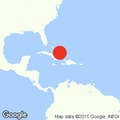
GUANTANAMO BAY NAVAL BASE, Cuba — It was late October at a relatively mundane pre-trial hearing in the military commissions process for the alleged 9/11 conspirators. A code-named witness who oversees a unit of guards at the Guantanamo Bay Naval Base’s detention center was testifying on how guards would forcibly remove uncooperative detainees from their cells at the notorious prison.
The televised video and audio feed of the court session, which is transmitted with a 40-second delay on its closed-circuit broadcast in order for officials to immediately scrub anything classified, remained untouched.
But when the transcripts of the session came back weeks later, dozens of full pages were blacked out entirely, and dozens more had partial redactions. The government, for whatever reason, had decided after the fact that the information shouldn’t have made it onto the airwaves, and certainly shouldn’t make it into the publicly posted transcript.
More than a month since that original testimony, and two years after a separate incident saw mysterious third party government agency censoring the public, pre-trial hearings of the alleged 9/11 conspirators, it remains unclear how the government — or who in it — gets to decide what parts of the Guantanamo Naval Base’s military commissions are shielded from public view.
The move sparked confusion among reporters and a handful of observers, part of a narrow crowd of approved people who are allowed access to the limited broadcast fed out of Cuba’s most secure courtroom. But the Defense Department says the move was above bar.
“It is rare, I have not encountered it actually thus far for a transcript to be redacted, but there is a rule that enables that,” chief prosecutor Gen. Mark Martins told reporters Saturday. “It’s possible for testimony to be elicited that then somebody in the executive branch says frankly, if that’s out there, it could be damaging, it ought to be protected. There’s a thought process that could be applied after the fact, and that’s what happened here.”
The authority under which this after-the-fact scrubbing can apparently happen derives from both the Obama Administration’s broad executive order on classification authorities and a lesser-known provision of the Military Commissions Act, which requires any publicly posted transcripts be scrubbed of “inadvertent utterances” of classified material.
Martins incorrectly estimated that only five of the more than 300-page October transcript had been scrubbed. In reality, dozens of pages were completely black, and dozens more had partial redactions. But no one will say who in the government made the call to pull once public testimony behind a classified veil.
That question remained here Monday, as the Guantanamo legal taskforce delayed a scheduled pre-trial hearing to discuss in closed session the use of classified evidence, including the information now erased from the October transcripts.
Pressed who had asked for the post-facto redactions and whether personnel within the Joint Task Force had the ability to unilaterally make the call on their own, Martins wouldn’t elaborate.
“There are authorities within the executive branch...it’s the people who know what the really sensitive stuff is. Those are called original classification authorities. They’re throughout the executive branch,” Martins said. “There are classification authorities in the Department of Defense, in different places within the Southern Command of the Department of Defense, within other agencies throughout the government who can say, ‘I know this area, I know what is known by an adversary and I think that would be damaging.’”
Questions over who is censoring the Guantanamo Military commissions have plagued the process in recent years. In one 2013 incident, a still-unconfirmed third party government agency, largely assumed to be the CIA, cut the closed circuit feed out of the courtroom. The incident confused even the presiding judge, who up to that point, had thought only limited personnel within the secure courtroom could scrub the tightly held broadcast.
As for the now-partially classified October 30 transcript, Martins says the redactions are their own special type of transparency.
“You have a transcript. You have an ability to see what was being discussed. You have an understanding of generally how much material you’re not seeing,” Martins said. “The law regards that as degrees of openness and closure that are appropriate to pay attention to.”

